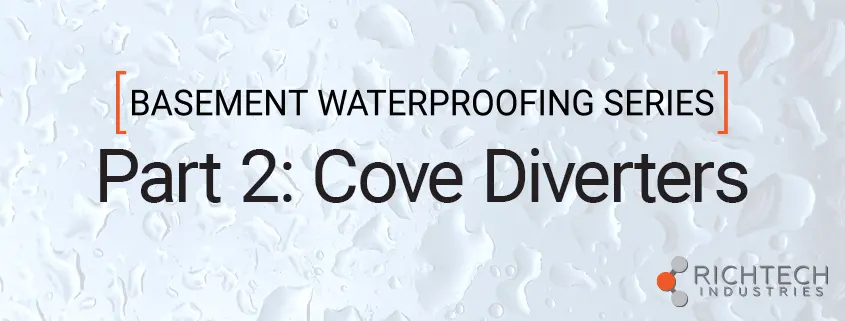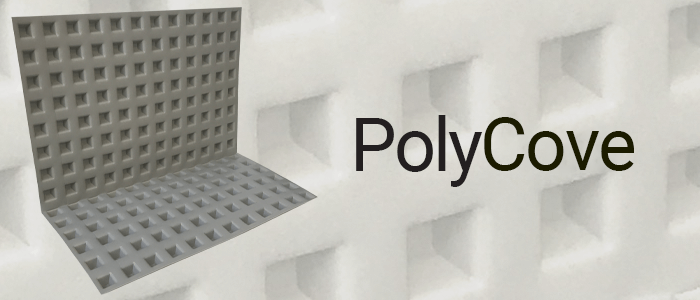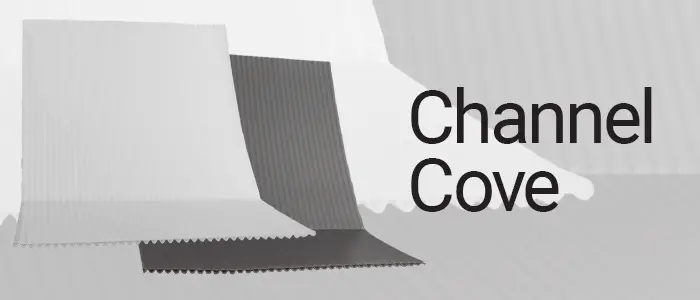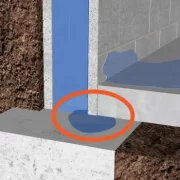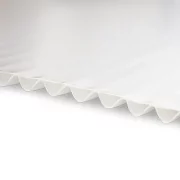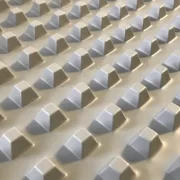Basement Waterproofing Series
Part 2: Cove Diverters
The Cove Joint
Once you have isolated the source of your water intrusion, you can begin to mitigate it. There are many approaches and opinions on the best way to manage water intrusion. Fortunately, the University of Minnesota has done a study on the most effective ways to mitigate water from a foundation/basement.
In their study, they described five different methods in which water mitigation was possible. Of those five, two (which were deemed the most effective) used what is called a cove diverter and a French drain system.
In your home you have what is called a cove joint. It is the point in the foundation where the footer and the block wall meet. This is often the easiest access point for water to enter and where most water issues arise.
A cove diverter is a product that is designed to guide water from the base of a wall (weep holes) or the cove joint and move it to the drain tile system that is on, or preferably next to the footer. One of the best cove diverters on the market is a product called PolyCove.
PolyCove
PolyCove is an Ultra-high Molecular Weight Thermoplastic (UHMW) material that has been specifically engineered to be the most effective cove diverter. Its rugged and durable composition allows it to be malleable and easy to work with. Yet its dense nature means you do not have to worry about it being brittle or cracking under pressure or in cold weather.
In conjuncture with its strength, there are a few other components that make it the favorite of waterproofing professionals. The ability to specify sizes or color means you can get the perfect roll to suit your specific job. Another unique feature of PolyCove is its waffle-like nature. Each PolyCove roll has what we call 5/8” air gaps, or dimples. These dimples are lined across the entirety of the roll and create a channel for the water to flow. As mentioned earlier, water will take the path of least resistance. Creating a healthy channel to flow will optimize the movement of the water to the drain tile.
Yet another benefit of these dimples are the holes that are created on the top side. When repouring concrete, it will find its way into these holes. The extra concrete will create a thicker floor and increase the overall strength of the repoured floor.
Although PolyCove is a favorite of basement waterproofing professionals it is not the best option for every water mitigation project. Due to varying code restrictions across the country, or the age of the home, you will find that each footer thickness will not be the same. A varying footer size will mean the thickness of the slab will be different on each job. In some cases, you may have 8” of concrete between the footer and the surface, others 2”, or even in some nightmare cases less. In these instances with a thinner slab you can utilize a different cove diverter called Channel-Cove.
Channel-Cove
Channel-Cove is similar to its counterpart in the sense that it is designed to move water from the cove joint or weep holes to the French drain tile. It is also made from a high molecular weight thermoplastic. This means like Polydrain, it will be a durable solution and not crack or tear over time. There are however a few key differences in Channel-Cove that make it easier to use depending on the scope of the job. Some of these differences are:
- 250 ft of seamless product vs. 100 ft rolls
- Prescored to create a 10” X 5” bend
- Easy installation
- Can be finished with cap molding
- Narrow channels
The ¼” channels in the product make it the ideal solution for a thin floor. The channels will still allow water to flow freely to from the weepholes to the pipe, however they will not take up as much space as Polydrain.
The next component that differentiates it from its counterparts is the prescore. There is a brief serration at 5”, creating a bend with 10” and 5” widths. This score guarantees a clean fold and straight lines across the entirety of the footer. This combined with the option for a cap piece makes it the ideal solution for a job that has a worry of radon. With the cap, the straight lines, and some caulk; you have the ability to create a closed system.
Closed or open, Channel-Cove has been proven to be a fantastic solution for jobs that have a narrow floor, require a clean closed look, or simply do not have as much water flow. You can trust that the corrugated grooves will move the water to the French Drain tile system that is on or next to your footer.

